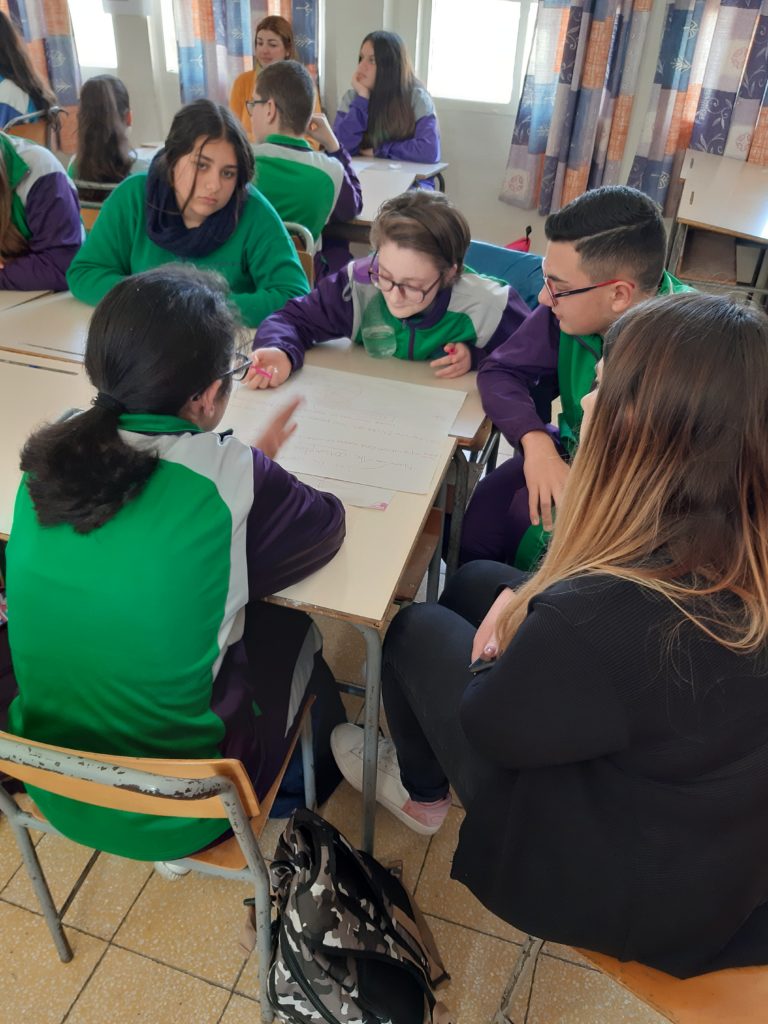
HSBC Malta Foundation supports life skills training for students
The HSBC Malta Foundation, together with the financial capability government initiative Ġemma, supported a training course entitled “Life Skills – Developing Social Entrepreneurs”. This pilot project, being a first for our educational system, was delivered by the British Council to Year 9 and Year 10 students, in the age bracket between 13 and 15 years of age.
The first successful event, held on Friday 6 March 2020, at San Ġorġ Preca College, Middle School, Blata l-Bajda, saw students attending from seven different schools, which included Gozo College Secondary School, Maria Regina College Mosta Żokrija Secondary School, St Ingnatius College Ħandaq Secondary School, St Benedict College Kirkop Secondary, St Thomas More College St Lucia, St Margaret College Verdala Secondary and St Theresa College Mrieħel Secondary School. Students were organised into teams and each team was given awards for creativity, innovation, best presentation, social impact, environmental impact, investment readiness, team dynamics, amongst others. At the end of the training course, each student received a certificate of attendance.

Joanne Zammit, Education Officer for Accounting, Business Studies and Retail from the Ministry of Education and Employment, said: “Through this programme students come up with questions, to explore various issues and assess their impact on individuals and communities. The Ministry believes that such an educational experience generates various positive effects for young students. Designed in such a way so that it can improve the understanding and knowledge of youth on social innovation and entrepreneurship, the programme’s course of study also develops the basic skills for learning, work and life. Each workshop covers a different subject, such as innovation, team work and confidence building, while each activity is planned to encourage them to use different sets of skills such as critical thinking and problem solving, communication and cooperation, creativity and imagination, active citizenship, digital competence and leadership.”
Glenn Bugeja, Corporate Sustainability Manager at HSBC, said: “The British Council and HSBC Malta Foundation are on the same wavelength. We believe that training on life skills helps students develop their self-confidence and successfully deal with life changes and challenges, such as bullying and discrimination. It gives them voice: at school, in their community and in society. It provides them with an opportunity to make a positive contribution in society, by developing the experience they need to assert their rights while understanding their responsibilities, and preparing them for the challenges and opportunities of work and life in general.”
Ingrid Eomois, Country Director of the British Council, said: “Life Skills are not something new; they are a set of basic skills that enable us to effectively manage the challenges and questions we face in our daily lives. They include confidence, assertiveness, decision-making, and the ability to stay safe and healthy. Schools are uniquely placed to play a key role in promoting and sustaining young people’s emotional and social health, as part of their role in providing a rounded quality education, which helps pupils to gain the confidence they need to develop into successful adults. We are therefore delighted to be working with the Maltese Ministry of Education on the development of this project for Maltese and Gozitan schools. I would also like to thank HSBC and the government initiative, Ġemma, for their support in recognition of the importance of life skills for the future employability of young people.”
David Spiteri Gingell, Programme Manager of Ġemma, said: “There is strong correlation between poor life skills and persons being financially excluded. The inculcation of life skills in the DNA of our future generations will result in a more financially capable person – one who is far more employable and equipped with the skills that allows them to be successful in today’s increasingly complex world – and hence able to enjoy an improved quality of life. Life skills, including entrepeneurialism and financial capability promote increased belief in oneself, and are fundamental to improving social mobility.”
- March 19, 2020 No comments Posted in: Education Tags: HSBC Foundation, life skills, training





